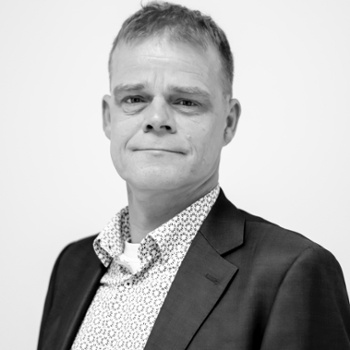Panteia, KEA European Affairs, and Vrije Universiteit Brussel (SMIT) to coordinate the European Expert Network on Culture
The European Commission’s Directorate-General for Education and Culture (DG EAC) has awarded the European Expert Network on Culture (EENC) to a consortium comprising Panteia, KEA European Affairs, and Vrije Universiteit Brussel’s Studies in Media, Innovation and Technology (SMIT). This consortium will manage and coordinate the EENC until 2029.
The EENC is a cornerstone of the European Commission’s efforts to provide high-quality, independent expertise in the fields of culture and cultural heritage. The network’s work will help shape policies that harness the transformative power of culture to drive social cohesion, economic growth, and international collaboration. Our network of experts will guide the Commission over the coming four years on a number of topics related to the sector.
Supporting EU Policy Development in Culture and Heritage
The EENC’s primary objective is to provide rigorous and timely analysis, synthesis of research, and policy recommendations to DG EAC. The network will support the Commission by addressing targeted requests and delivering actionable insights across a broad range of cultural policy issues, such as:
- Mapping legislation, funding programs, and policies across the 27 EU Member States and beyond.
- Producing thematic analyses, literature reviews, and policy briefings.
- Offering ad hoc advice on emerging policy challenges.
- Supporting meetings, methodological work, and the development of reports for the Commission and its Open Method of Coordination (OMC) groups.
The EENC’s expertise will encompass the three dimensions outlined in the 2018 New European Agenda for Culture:
- Social dimension: Enhancing social cohesion and well-being through culture and diversity.
- Economic dimension: Promoting culture-based creativity, education, innovation, and jobs.
- External dimension: Strengthening international cultural relations.
Priority Themes for 2023-2026
The network’s work will align with the priority themes of the EU Work Plan for Culture 2023-2026. It will also address the evolving needs of the Commission, including:
- Digital Transformation: Exploring the impact of AI, blockchain, and other advanced technologies on cultural and creative sectors (CCSIs).
- Green Transition: Assessing energy efficiency and sustainability practices in the CCSIs.
- Working Conditions of Artists: Investigating key issues such as mobility, gender equality, and remuneration.
- Cultural Diversity and Access: Promoting the discoverability of European content online and supporting cultural inclusion.
- Culture and Health: Highlighting the role of culture in mental health and well-being.
Consortium Expertise
The consortium’s expertise is rooted in its members’ longstanding contributions to cultural policy research:
- Panteia: A leader in evidence-based policy research, renowned for its robust methodologies and multidisciplinary approach.
- KEA European Affairs: A pioneer in advising public and private stakeholders on cultural and creative industries, focusing on innovation and policy development.
- Vrije Universiteit Brussel (SMIT): An academic institution with cutting-edge research on media, innovation, and cultural transformation.
A Broad and Flexible Scope
To meet the dynamic needs of cultural policy, the EENC will address both established and emerging topics, including:
- The status of cultural and creative professionals.
- The role of culture in sustainable development and democratic citizenship.
- Governance and investments in cultural heritage.
- The international dimension of cultural policy, including relations with UNESCO and third countries.
The network’s ability to respond to newly emerging policy areas will ensure its relevance and adaptability beyond 2026, supporting the transition to the next Commission and the successor Work Plan for Culture.
Driving Cultural Transformation in Europe
Culture and creativity are vital drivers of Europe’s digital, green, and fair transitions. The cultural and creative sectors account for significant growth and jobs in the European economy while fostering innovation and social inclusion. By leveraging the combined expertise of Panteia, KEA, and SMIT, the EENC will empower the European Commission to respond effectively to challenges and opportunities in culture and cultural heritage.
For Inquiries
Please contact Paul Vroonhof (p.vroonhof@panteia.nl) and Martin Clarke (m.clarke@panteia.nl)
About the Consortium
- Panteia: www.panteia.com
- KEA European Affairs: www.keanet.eu
- Vrije Universiteit Brussel (SMIT): https://smit.research.vub.be/en
About DG EAC The Directorate-General for Education and Culture of the European Commission is responsible for EU policies in education, culture, youth, languages, and sport. https://commission.europa.eu/about/departments-and-executive-agencies/education-youth-sport-and-culture_en

